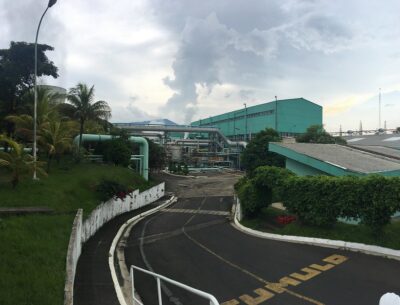Japan supporting Caribbean renewable development efforts
CBD, JICA and IDB want to foster the growth of renewables; making special emphasis on geothermal in the Caribbean in order to reduce electricity costs and dependency on foreign energy imports.
The Caribbean Development Bank (CDB), Japan International Cooperation Agency (JICA) and the Inter-American Development Bank (IDB) will be working closely to transform the energy landscape in the Eastern Caribbean.
Together, the agencies will support the efforts of Eastern Caribbean States to tackle high energy costs and reduce dependence on fossil fuel-generated energy by diversifying its energy matrix and promoting renewable energy and energy efficiency.
This was announced today as Nigel Romano, CDB’s acting vice-president of operations; Toshiyuki Kuroyanagi, vice-president of JICA and Gerard Johnson, general manager of the Caribbean Country Department of IDB signed a memorandum of cooperation at the Trinidad Hilton in Port of Spain.
The signing took place within the broader context of the staging of the first CARICOM-Japan Summit led by Prime Minister of Japan Shinzo Abe.
“Reducing poverty through inclusive and sustainable social and economic growth, and building resilience to external shocks and natural hazard events underpin all of CDB’s development financing and technical assistance to its BMCs. Within that broad framework, the Bank has been intensifying its focus on renewable energy and energy efficiency,” Romano said.
The MOC will identify and support programmes and projects which explore a joint effort for further introduction of renewable energy and energy efficiency in the EC countries, with special focus on geothermal development.
The CDB is actively promoting a new green economy paradigm for sustainable growth, noting that renewable energy, coupled with energy efficiency, would create opportunities for the growth of new non-traditional businesses, lower electricity costs and boost foreign exchange reserves by reducing energy imports.
The CDB is also promoting this transformation through both development financing and technical assistance, and will mobilise private sector participation through public-private partnerships.
Source: Nation News Website


















